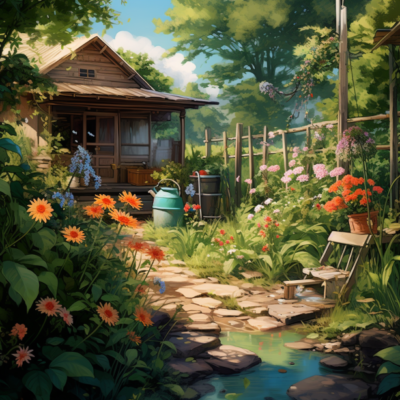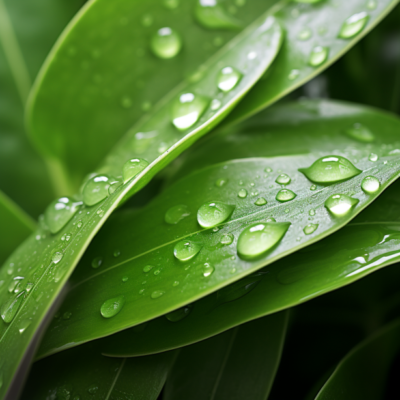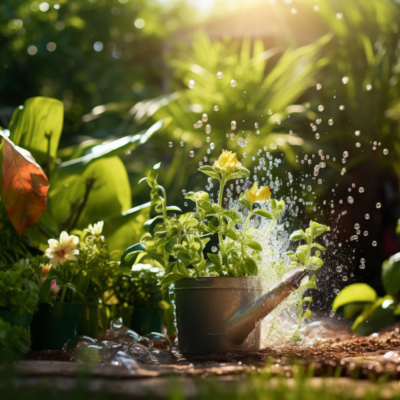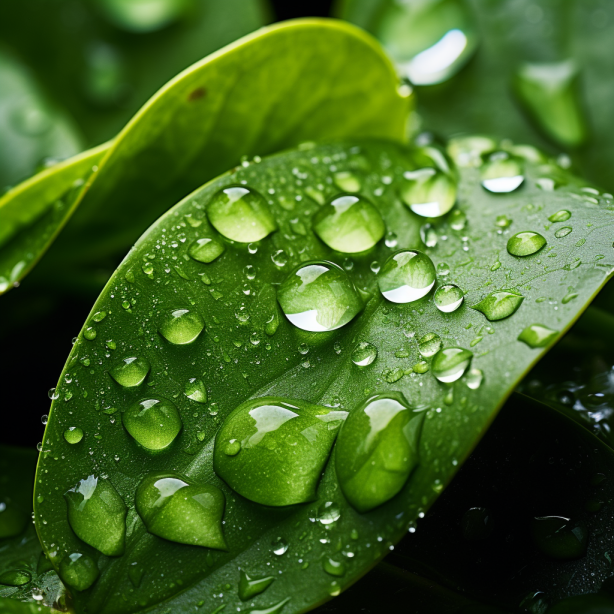“Soapy solutions probably won’t pose issues for most houseplants,” says botanist Sarah Oak.
Years back, I lost a fern trying soaps and learned the truth is complicated.
Now my jungle teems with plenty, so I know a thing or two about keeping ’em happy.
Whether you got a single pothos or a full-on foliage farm, this plant veteran’s insights will do you right.
Read on to find safe scrubbing methods I’ve honed through many a season.
You’ll also glimpse behind green leaves to spotted issues better fixed before it’s too late.
Once you get the dirt on proper cleaning and what warning signs to watch, your indoor grove will gleam for all to see while still lush and lush.
So keep turnin’ them leaves for nature’s finest fees – a clean and cheerful indoor ecosystem just for you!
KEY TAKEAWAY
Is soapy water bad for plants?
Soapy water can have varying effects on plants, depending on factors like concentration and frequency of use. (1)
Careful consideration and moderation are essential when using soapy water to avoid potential harm to plant life.
Soapy Water for Plants: Friend or Foe? Unmasking the Myths and Truths
Over the years I’ve seen all sorts of notions about what’s safe for leafy folks.
Seems most say steers clear of soaps is best.
But through trials of my own and expert research, truth ain’t so straightforward! Let me walk you through exactly what I’ve found.
Turns out it depends what kind of soap and how much you use. (2)
Some soaps really do more harm than good when misapplied.
But others prove powerful allies against mite mayhem when wielded right.
See, bugs like mealybugs and spider mites hate the suds.
One products I’ve had great success with is insecticidal soap.
Made from plant oils, it blasts pests while leaving orchids and such unharmed.
Science backs up what works too – one study found soaps hurt nothing when diluted according to packaging.
So before crossing soaps off the list, hear more on using the right cleaners for right scenarios.
You may be pleasantly surprised!
Does Dish Soap Dehydrate Plants? Debunking the Soap Suds Scare
All my plant pals know how I feel about a clean leaf.
But there’s one cleaner who gets a bum rap – dish soap.
For years I shied from the suds, scared they’d dry out delicate leaves.
Turns out that fear came from fiction, not fact!
See, even diluted washing liquid poses zero risk to houseplants when wiped just on top sides of leaves and undersides of leaves.
Problem is most folks use too much, or get it where it shouldn’t be.
But cut back to one pump per quart water and you’ll never see sad plants.
In fact, soaps make fantastic fungicides for spots and mite medications too.
Just be gentle and you’ve nothing to dread! Slather the suds on bad bugs, not entire plant.
Now bugs get scrubbed while your jungle stays as cheery as ever.
Pest Control with Suds: When Soapy Water Works (and When It Doesn’t!)

Now you have seen why soapy water gets a bad rap when misused.
But put to work right, it proves mighty pest patrol! See certain soaps pack ingredients worms and mites can’t stand.
Those soaps made from vegetable oil like castile soap blast bugs without hurting your jungle.
And for pest control, they work wonders on my tomato and berry patches too! Now the caterpillars steer clear thanks to the occasional spray.
Just be sure to use a small amount cut with water, or you’ll end rinsing off natural oils keeping leaves shiney as can be.
Better yet, try soaps with added oils like citrus or cinnamon.
Natural fatty acids mean double whammy knocking out insects like grasshoppers while smelling oh so nice.
Impacts of Soapy Water on Soil
Now we all have seen plants bounce back from suds splashed on leaves before.
But drenching dirt is a whole ‘nother story! See, soaps can cause real problems for soil health and plant roots down below if used wrong.
Key thing is residue buildup.
Soap chemicals linger longer on soil, unlike rinsed foliage.
Detergent sodiums also bind minerals, blocking uptake of nutrients plants need to thrive.
And them suds hamper soil from absorbing rainwater right, so you get runoff issues.
I learned the hard way after a spilled bucket back in ’09 lost me my whole tomato trellis.
Them soapy soils couldn’t nourish no veggies for years after! Now I always dilute gentle as can be and use plant-safe soap alternatives like citrus peels.
Lesson is moderation and monitoring soil health close.
An occasional splash likely won’t vex viable verdure, but take care friends – once soggy soil goes bad, bringing life back ain’t no quick task.
Natural Alternatives to Soapsuds: Protecting Plants without the Lather

While soapy water shines when wielded right, some folks still get skittish ’bout sudsy solutions.
Now for those seeking petal-pleasing pest patrol no suds required, look no further! See certain oils and pastes repel without mess.
Take neem oil for instance – bugs can’t stand its smell one bit.
But it leaves your jungle smelling sweet as summer.
Many cooperative extensions also sell natural sprays using plant extracts like mint or garlic.
Give critters the heaves every time while keeping your houseplant haven pure as possible.
‘Course for small issues, bring in beneficial insects! Ladybugs love munching what mites your garden absolutely hates.
Accidental Spillage Alert! Can Tiny Bubbles Big-Time Harm Your Plants?
Now we all been there – clumsy moments leadin’ to sudsy messes.
And if it’s your houseplants left with a soapy surprise, worries set in somethin’ awful! Well let me ease your mind on this.
See, odds are all’s well even after slips with the dawn dish soap.
Take tomatoes outside – them buggers thrive with occasional splashes, long as not drenched.
Indoor varieties face likelier risks ‘less doused, since drier air means slower drying.
But even fungus gnat-ridden plants bounce back from mild spills.
The secret is to rinse promptly before dried suds hurt tiny hairs atop leaves.
Besides, bubble magic disappears below ground quick as winking.
So next oops, just relax! Odds favor fast recovery with some tender TLC.
Impacts of Soapy Water on Soil
Science Says: The Chemical Breakdown of Soapy Woes in the Garden

Y’all know how I feel about scrubbin’ those houseplants! But some folks still get their nerves in a pinch o’er sprays safety.
Well if wonderin’ what’s really in them soaps, hear this from an ol’ master gardener.
See most modern house soaps bated bugs with salts of fatty acids likened in plant waxes.
Those salts hydrolyze – or break apart in water solution – meanin’ no oily residue left behind to potentially vex sensitive petals and such.
Plus most soaps today treat water first to get rid of mineral deposits that could, in theory, harm plants.
So rest easy friends – ain’t nothin’ in cleaned leaves but clean leaves once rinsed! Your jungle’s in safe, shiny hands with the right scrubbin’.
DIY Pest Patrol: Crafting Safe Soapy Solutions for Gentle Plant Power
Worried ’bout store-bought soaps? Worry no more! Come learn this plant person’s five-star homemade hit.
Now them University of California folks say for DIY insecticidal soap, naught but a pump of washing liquid does the trick.
Just mix one teaspoon per quart in your spray bottle along with pinch of wetting agent for even coverage.
Like the rest, I use mild pure castile so plants stay happier than pigs in slop.
‘Course any soap’ll do, so long as liquid hand or some such.
Fact, simpler is safer – no need fancying up natural bug buffets.
Just be consistent and watch problems disappear!
From Sudsy Scrub to Sprouting Smile: Rescuing Soapy Mishaps in the Green Sanctuary
We all did stupid things – like that time I slopped a gallon of water on ferns in a klutzy bid for clean.
But don’t fret friends – most foibles fix themselves, given plants’ will to live.
Quick rinse sets things right more often than not.
Beyond that, tenderness does the healing! Now the New York City types say to water regularly and give foliages bright spots, and before you know it new growth’s a-swellin.
Faith in leafy beauties’ resilience frees you to keep livin’ and lovin’ your green getaway without dread or worry.
So next tub splash or clumsy moment, just breathe deep and let nature do her magic – I promise a happy end!
Frequently Asked Questions
How do insecticidal soaps work?
Insecticidal soaps work by disrupting the outer waxy coating on insects’ bodies, thereby dehydrating them.
They are usually made from potassium salts of fatty acids like palm or coconut oil, which penetrate the protective waxy layer on the outside of insects.
This causes the pests to lose water and ultimately die.
Insecticidal soaps do not negatively affect most plants because their waxy coatings are different from those on insects.
Can dishwashing liquid harm plants?
Most dishwashing liquids are generally safe for plants when diluted and used sparingly.
However, plants can be sensitive to dye and scent additives in some dish soaps.
It’s best to use a fragrance-free, dye-free dish soap when cleaning plants.
As with any chemical, avoid over-application which could potentially stress or damageplants.
Products labeled “plant-safe” or “pet-safe” are safer options.
Will soap water kill plants?
In large quantities or concentrations, soapy water can harm or potentially kill some plants.
However, most houseplants can tolerate occasional light applications of diluted soapy water on leaves and surfaces without issues.
The keys are to use a small amount of soap mixed with water according to label directions and rinse plants thoroughly afterward with plain water.
Monitoring plants closely after treatment is also recommended.
How can I control pests without soap?
There are some non-chemical options for controlling common houseplant pests without using soapy water or chemical treatments.
For aphids, fungus gnats and other soft-bodied insects, Neem oil or insecticidal soap safely eliminates pests while being plant-safe.
Beneficial insects like ladybugs also help control pests.
Quarantining and inspecting new plants is important to prevent introducing issues.
Removing pests by hand and improving growing conditions also aids pest control.
Does soap kill plants?
In large quantities, soaps can damage or even kill plants.
Commercial insecticidal soaps are specifically designed for plants in dilute concentrations and do not typically harm foliage.
Dish soaps, laundry detergents and other household cleaners can be phytotoxic to plants in concentrated form or excess amounts, as detergent residues may clog plant stomata.
Used sparingly and diluted according to product instructions, most soaps pose low risk when rinsed off surfaces and leaves of houseplants.
Is spraying soapy water a good idea?
Spraying soapy water can be an effective way to control certain common houseplant pests like aphids, scale and spider mites.
However, it’s important to only use a small amount of soap diluted in water according to product directions.
Rinsing plants thoroughly with plain water after treatment is also recommended.
Some plants may be more sensitive, so it’s best to test soapy water on a small area first.
Natural alternatives like neem oil are usually safer options that still control pests without chemicals.
Can water kill plants?
In large quantities, water can potentially harm or kill some plants.
However, most houseplants are very tolerant of occasional watering and moisture on leaves and soil.
The key is monitoring drainage and allowing soil to dry out somewhat between waterings.
Problems may arise if plants are left sitting in waterlogged soil for prolonged periods, as root rot can develop.
Occasional splashes and moisture from cleaning or humidifying should not negatively impact foliage of tolerant indoor plants.
Do soaps and detergents harm plants?
Some household cleaning product residues left on plant leaves could potentially stress foliage.
Most modern plant-friendly dish soaps, laundry detergents and hand soaps pose low risk to houseplants when used sparingly and rinsed thoroughly.
Harsher chemicals, excessive residue and improper application may harm sensitive species.
In general, avoid using concentrated cleaners on plants.
It’s best to spot test soaps first, rinse leaves well and increase ventilation after using cleaners near foliage or soil.
Will homemade insecticidal soap hurt my indoor plants?
Well-formulated homemade insecticidal soaps are usually safe for indoor plants when diluted and used as directed.
Common ingredientssuch as castile soap, water and a small amount of vegetable oil make an effective, low-toxicity spray.
As with any treatment, it’s wise to test a little soap solution on one leaf first before wider application and rinse plants thoroughly afterward.
Monitor for signs of stress and avoid spraying fruits or flowers which plants absorb soap residues into.
Dilution and moderation help make DIY soaps plant-friendly.
Conclusion
Well now folks, hope I cleared that soapy haze once and for all!
Truth is, cautious cleanings pose no peril to most houseplants near and dear.
Just go sparin’ with the suds as any good steward, and keep leaves shining with regular rinses to boot.
Besides, these alternative sprays work wonders too for cleanin’ natural style no fuss required.
Of course, some soaps are safer skipped – those with dyes or synthetic smells best left to tubs alone.
But with old-fashioned castiles or that DIY delight, even messes mend given greenery’s grit.
So don’t you fret none ’bout keeping leafy lovelies shipshape for seasons to come.
And if any other questions come to mind on proper plantin’ practices, don’t be shy now – just holler!
Always glad to lend an ear and share more of what I’ve learned in long days of loving green.




